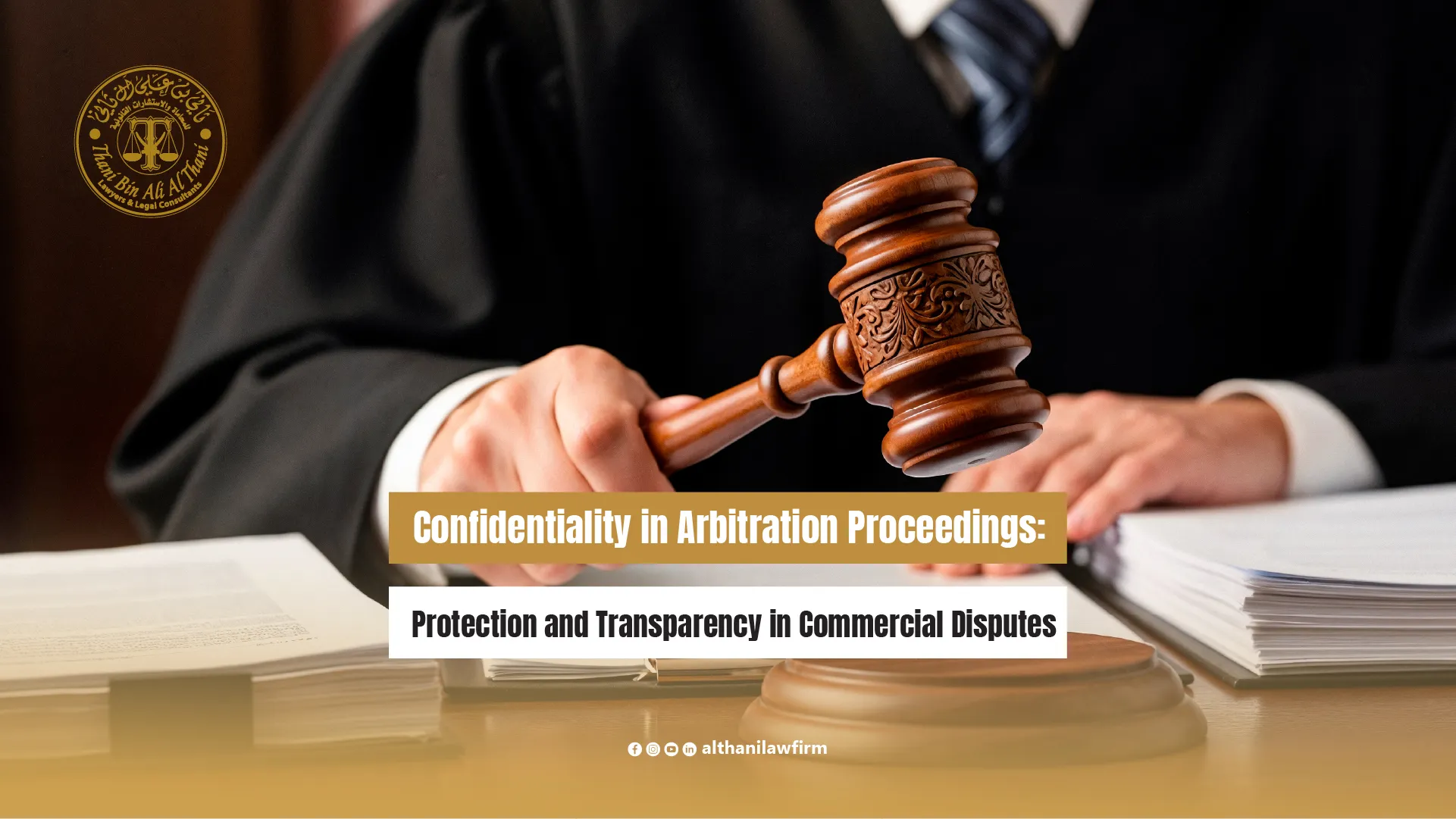Introduction
Arbitration is considered a parallel legal system to the judiciary, based on the principle of party autonomy, as it may only be resorted to through a written agreement between the parties. Arbitration is characterized by its flexibility and efficiency in resolving disputes outside the framework of traditional litigation.
Despite the parties’ reliance on arbitration, the role of the natural judge remains present and necessary at various stages of the arbitral proceedings.
What, then, are the powers of judge in arbitration?
Definition of Arbitration
Arbitration is a consensual legal method for resolving existing or potential disputes between parties concerning specific legal relationships, whether contractual or non-contractual. It is based on the parties’ agreement to appoint arbitrators to resolve the dispute and issue a final and binding award.
Elements of Arbitration
- The existence of an actual or potential dispute.
- A written agreement between the parties.
- Recognition of arbitration by the legal system of the state.

Effects of the Arbitration Agreement
When parties agree to arbitration, the following consequences arise:
- The parties waive their right to resort to the competent court.
- The other party has the right to invoke the arbitration clause when a case is brought before the court by raising a plea of inadmissibility.
Article (8) of the Arbitration Law affirms this:
“An arbitration clause results in the parties waiving their right to resort to the competent court… and the other party may invoke the arbitration clause by raising a plea of inadmissibility of the case.”
Powers of Judge in Arbitration
Despite the independence of arbitration as a mechanism for resolving disputes, the role of the natural judge remains essential according to the law. His powers include the following:
1- Removal of Arbitrators
An arbitrator may be removed by the mutual consent of all parties or by a ruling from the competent court.
Article (14) of the Arbitration Law clarifies this:
“If an arbitrator is unable to perform his duties… the competent court may order the termination of his mandate upon the request of any party.”
2- Challenging Arbitrators
Parties may file a request to challenge an arbitrator if a reason for challenge arises, whether before or after the arbitration agreement is made.
3- Appointment of Arbitrators
If the parties fail to appoint arbitrators in accordance with the arbitration agreement, any party may resort to the competent court to appoint an arbitrator.
4- Issuing Interim and Protective Measures
The natural judge has the authority to issue interim measures upon the request of one of the parties.
These measures include:
- Maintaining the status quo until the dispute is resolved.
- Preventing immediate or imminent harm.
- Providing means to preserve evidence and assets necessary for enforcing the award.
Article (17/1) states:
“The competent court may take interim measures upon the request of one of the parties, to prevent imminent harm or preserve the evidence necessary to resolve the dispute.”
Difference Between the Competent Court and the Competent Judge
- Competent Court: The Arbitration Disputes Division of the Civil and Commercial Court at the Court of Appeal or the Civil and Commercial Court of the Qatar Financial Centre.
- Competent Judge: The Execution Judge at the Primary Court.
Interim Measures in Arbitral Cases
The competent judge may issue interim measures in two cases:
- Lack of jurisdiction of the arbitral tribunal or its inability to act effectively.
- The presence of imminent harm or an urgent need to protect evidence or assets.
These measures include:
- Maintaining the status quo.
- Preventing actions that may cause harm to the arbitral proceedings.
- Protecting essential evidence and documents.
Conclusion
Arbitration is considered an optional and effective means of dispute resolution; however, the role of the natural judge remains fundamental at various stages of the arbitration proceedings. The judge’s authority includes dismissing arbitrators, challenging them, appointing them, and taking interim measures to preserve the rights of the parties and ensure the proper administration of justice.
Activating the judiciary’s role within the framework of arbitration guarantees the realization of justice and safeguards the legal system from any breach that may harm the interests of the parties or hinder the enforcement of arbitral awards.


